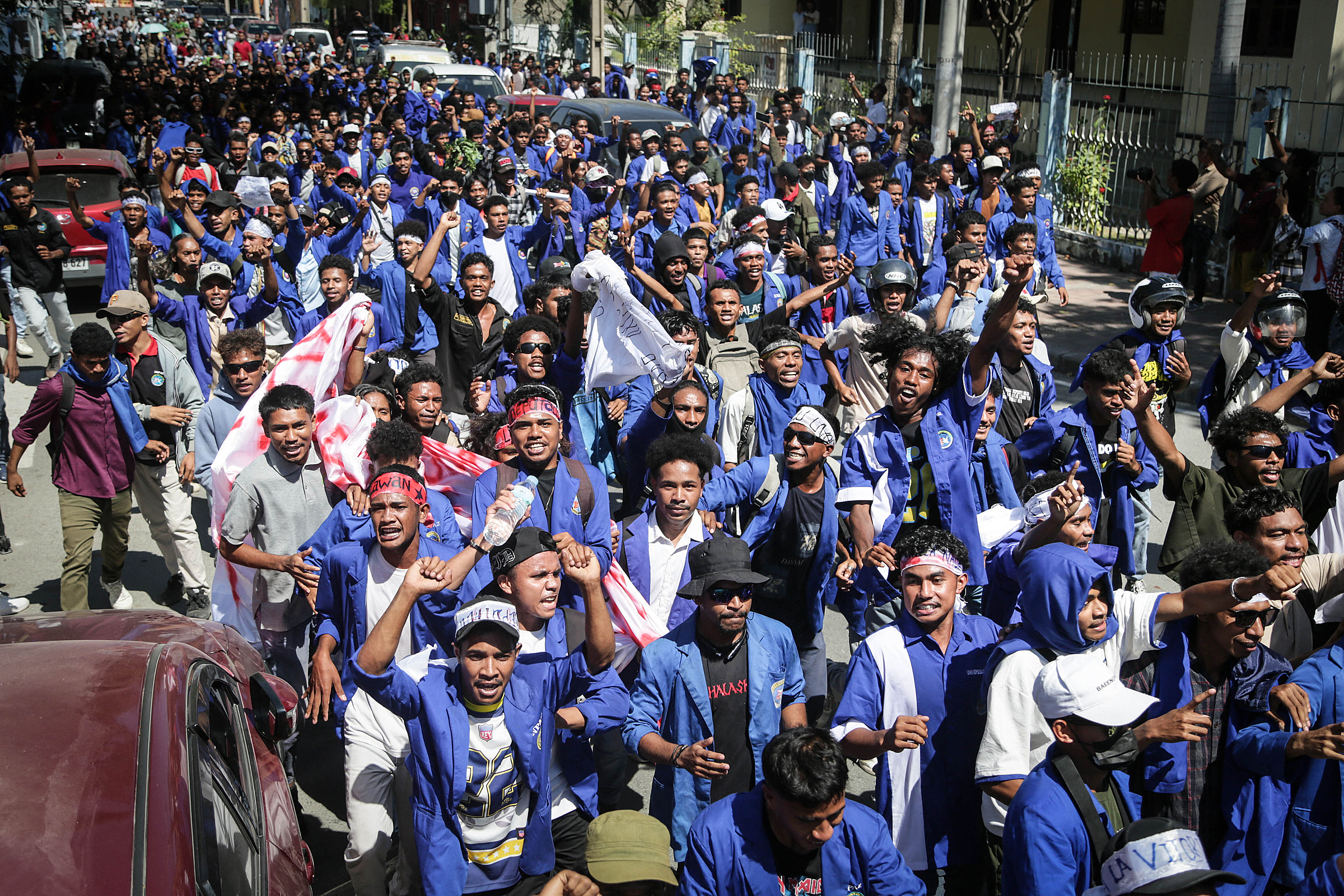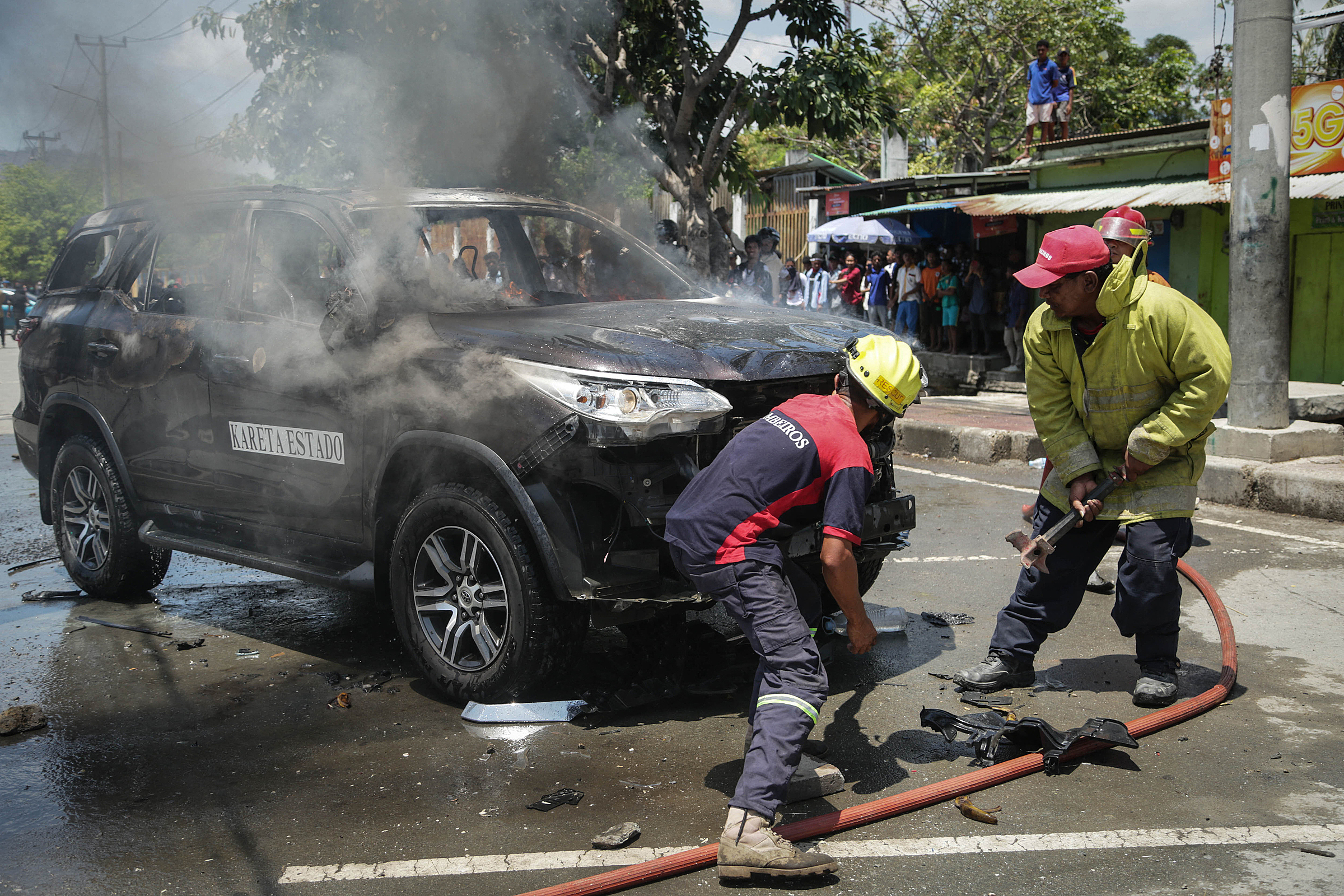Over 2,000 people, mostly students from various universities in Dili, gathered near the parliament building on Tuesday to protest the plan to purchase official vehicles for 65 members of parliament (MPs). Each MP was slated to receive a new SUV.
The protest began peacefully, but some participants later threw rocks at police, forcing them to use tear gas to disperse the crowd.
 |
Students protest in Dili, Timor Leste on 15/9 against the plan to purchase vehicles for MPs. Photo: AFP |
Students protest in Dili, Timor Leste on 15/9 against the plan to purchase vehicles for MPs. Photo: AFP
This was the second consecutive day of protests in Timor Leste, following a demonstration involving over 1,000 people yesterday. Protesters threw rocks at the parliament building, damaging several cars. Police also used tear gas on the crowd, injuring at least 4 people.
Some political parties in Timor Leste subsequently announced they would ask parliament to cancel the vehicle purchase plan. These parties had previously approved the 2025 budget, which included the allocation for the vehicles.
Protesters said they would continue demonstrating until the plan is officially canceled. "The decision to cancel the vehicle purchase plan must come from the parliament itself. They need to break this bad habit of buying cars," said protester Domingos de Andrade, 34.
Protesters carried banners urging the government to "prevent corruption". They also burned tires and an official vehicle near the parliament building.
The Timor Leste government has not yet commented on the protests. National Police official Justino Menezes said authorities would summon the protest organizers to hold them accountable for property damage.
 |
An official vehicle burns during student protests in Dili on 16/9. Photo: AFP |
An official vehicle burns during student protests in Dili on 16/9. Photo: AFP
Timor Leste, which gained independence from Indonesia in 2002, is struggling with inequality, economic hardship, and high unemployment. Its economy relies heavily on oil.
According to the World Bank, over 40% of Timor Leste's population lives below the poverty line, making it one of the poorest countries in Southeast Asia.
Huyen Le (AFP)












